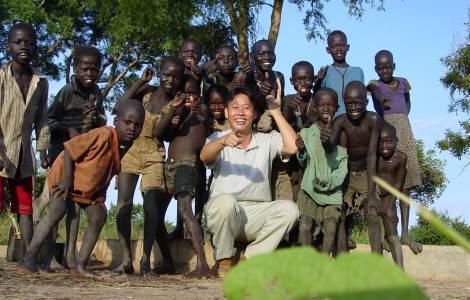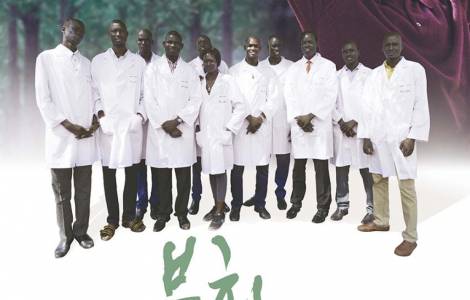
Rome (Agenzia Fides) - "Certain realities of life can only be seen with eyes washed by tears". These words of Pope Francis during the meeting with young people in Manila are the key to understanding the documentary entitled "Risurrection" which will be screened on Saturday 28 September 2024 at 11 a.m. in the Pius XI Hall of the Pontifical Lateran University at the end of the Week of Korean Culture, a series of events organized by the Embassy of Korea to the Holy See to celebrate the "Day of the Foundation of Korea" which falls every year on October 3.
The documentary shows the spiritual legacy of Father John Lee Tae-seok, a Korean Salesian who worked as a missionary and doctor in the community of Tonj in what is now South Sudan for almost a decade, from 2001 to 2009 (he was already a doctor when he became a Salesian, ed.). In Africa, he had a profound impact on the lives of the people he accompanied. At the time, these people were children or teenagers. Today they are adults, and some have followed his example and wanted to follow in his footsteps, not only in their profession as doctors, but also in their medical training, some even studying medicine at his university in Korea.
And it is precisely these students from the Faculty of Medicine at Busan University in South Korea who are the protagonists of the film by Korean director Goo Soo Hwan, who also directed the famous film "Don't cry for me, Sudan", also dedicated to Father Lee and which was an extraordinary success in his own country (it was also shown at the Vatican in December 2011).
"Risurrection" can be described as a sequel to "Don't cry for me, Sudan". Goo Soo Hwan's new work begins after the death of Father Lee in 2010. These sad moments are narrated by his students, young people who were plunged into despair by the news of his death. A despair that did not last long, however: they soon realized that their task was to continue his mission, albeit in different ways.
This is the key to the whole film: in South Sudanese culture, it is embarrassing to cry in public, but the students cannot hold back their tears when they think of their teacher. And it is precisely by sharing with him the love he gave them that tears soon give way to joy, and today gratitude towards Father Lee shines through in the gestures of his students. "Certain realities of life can only be seen with eyes washed clean by tears."
The director is keen to stress that the film does not only show the path of the missionary's students to the profession of doctor: "They have become people who give: it is about how they live their lives. And they live exactly the life of their 'spiritual father'. They showed me what happiness is and what authority really means." "I wanted to know if the tears had changed the students. Well, their lives have changed a lot," adds the director, who also has more than 30 years of experience as an investigative journalist. (F.B.) (Agenzia Fides, 27/9/2024)
